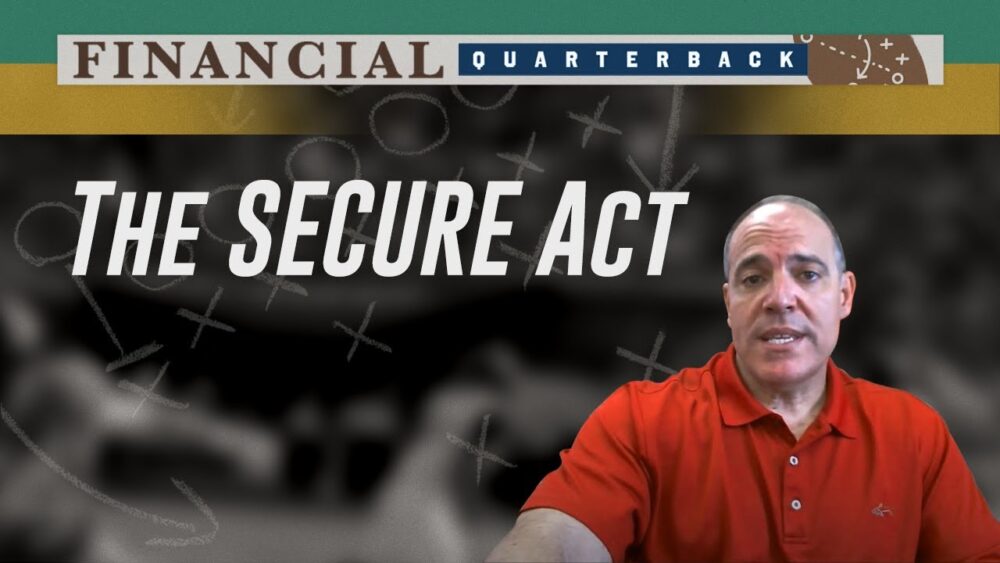The SECURE Act was signed into law into law in December 2019 and went into effect on January 1, 2020. The SECURE ACT changed some important aspects of retirement planning, the biggest one being the age at which to commence your Required Minim Distribution (RMD).
Here are some of the other important changes which are part of this Act.
- Annuities are now allowed in 401k’s: There are benefits here especially with future income. However, I see this as a big problem since annuities are complex and mistakes are expensive to undo. Unfortunately, most employers and employees know very little about their 401k and know much less about annuities. More than ever you will need a lot more planning as to how to use annuities inside of your 401(k) because if you use them wrong, it is usually something that you will not be able to change.
- No more 70 ½ for RMD. For years we all dreaded that 70 ½ distribution. Probably nothing confused people more than trying to understand, “when do I turn 70 1/2?”. There is no longer 70 ½. Now your starting age is 72. If you are already taking RMD’s this does not apply to you. If you were 70 ½ in 2019 you still have to take your distribution. If not you have till 72 now.
- You can be old and still contribute to your IRA. The old law did not allow you to contribute after age 70 ½. Now there is no maximum age. If you have EARNED (WORK) income you can contribute to an IRA. However, it would make no sense to contribute to a traditional IRA in most cases.
- No more STRETCH. This one is a big change. There was a GREAT benefit that if you were a non-spouse who inherited an IRA, you would be able to take payments from the accounts over your lifetime. This would allow the accounts to keep growing and keep you from getting stuck with all the taxes due in the year the death occurred. This rule was the same for the Roth IRA. Now the new law only allows the non-spouse beneficiary to go out 10 years. So you have to exhaust the entire account over 10 years. This is a big expensive deal.
So, there is now more planning to be done especially with RMD’s. But I think most importantly. Roth Conversions have become more crucial than ever for some.
So this is the SECURE Act. Some of this will not be affected by these rules but if you are, be mindful that we will definitely be planning on the best way to leverage these new rules.

